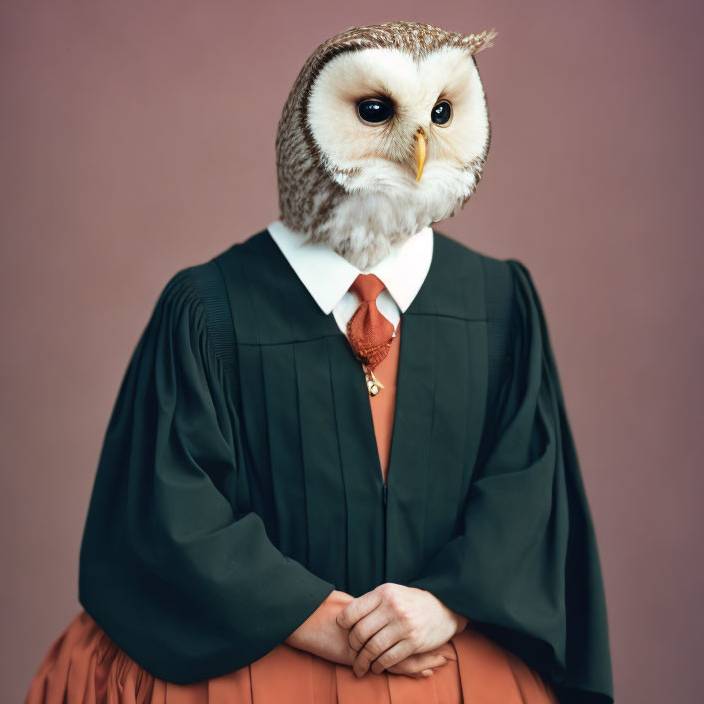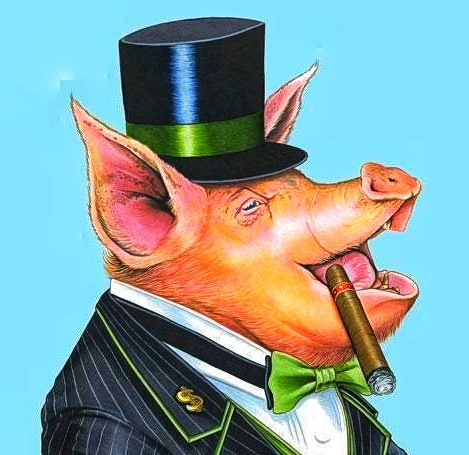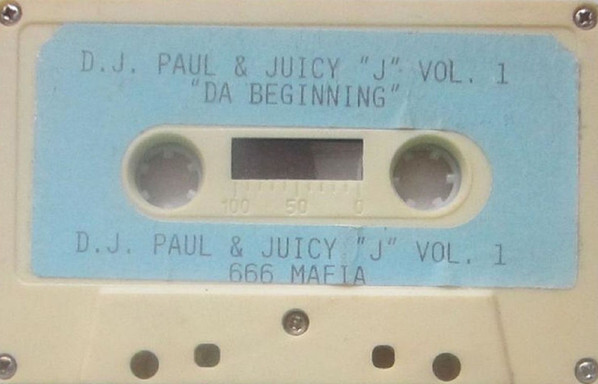I made this account as an alt because I’m deeply ashamed of the feelings and biases that could be considered reactionary. I know they’re stemming from living in a country that subscribes to the delusion of white supremacy, and other views that ultimately support capitalism, but I want to take responsibility for the work I have to do.
To give some context to the post title, I don’t think I’m virulently racist. I’m nonwhite, and I’m trying to address internalized racism and beliefs around white supremacy. I’ve read about and believe systemic racism is a thing, so I don’t think it’s a matter of me being convinced. I believe these are shitty and wrong things to feel, and I’ve done my best to consciously counter it, but I want to be better.
I’m trying to use things like Google to find resources, but it’s been so bad lately, and I don’t want to sink energy and resources into something like White Fragility when that’s not the kind of work I’m trying to do. Does that make sense?
I want to be better about self-crit, but I want to make sure I’m doing it the right way. Are there recommended books, resources, audiobooks, ways of approaching personal biases and maybe getting to the root of an issue around race? Is this just something that will click as I continue to actively confronting myself?
If there’s a more appropriate place to have discussions like this, I’m okay with this post/account getting removed. I don’t want to stir shit, and if this is a thing I need to work on with a therapist or on my own, I’m willing to continue doing that.
Has this impacted your life, relationships or organizing?
Has this hurt people around you?
If the answer is no, then I’d say you got caught up in the white-guilt industry. If the answer is yes, it’ll help clarify your question.
It’s affected my life in the sense that I tend to avoid people different from what I’m familiar with. I’ve been diagnosed with general anxiety and additional traits that could be connected to neurodiversity, so that could be contributing, but I want to put in the appropriate effort and not use that as an excuse. I know that’s an ableist way of seeing it, but I don’t want my own issues to hurt others.
It’s affected relationships in the sense of ‘dating preferences’. I hate that type of racism and I’ve been on the receiving end of it, but it’s something that takes up space in my head. I actively work against that tendency when I can, but I hate that it’s a conscious effort.
I don’t believe that I’ve directly hurt people as a result, and I’ve been mindful and apologetic if I’ve made missteps. I’ve never had somebody stop me and talk to me about saying or doing something insensitive. I’d like to think I’d listen and internalize what someone said about how I treated them.
I never really considered people of color getting caught up in the white-guilt industry. I guess it makes sense if we’re more aware and open to the idea of racism actually existing.
general anxiety and additional traits that could be connected to neurodiversity,
So this is pop psychology AF. But I feel like feeling anxious and unhappy with all that’s going on in the world just means that you’re healthy and awake. The “everything is OK” attitude from the average Westernoid is going to get us all killed. I feel like you should be more proud of your inner workings, as you’re probably a sensitive and thoughtful person.
If you’ve been diagnosed with GAD, that’s a good first step. Anxiety is a huge part of this. It makes you weird about everyone, and race shapes how you’re gonna be weird. Continue down the treatment road.
Something that helped me be more normal interacting with people was organizing, especially the kind where you’re approaching people cold to make an ask: canvassing, approaching someone in another department at work to join the union, that kind of thing. It makes people less scary.
Also, don’t just read about racism, it’s a weird way to look at a group of people. Read books by black people that are about more than just racism. Fiction is good. Check out The Fifth Season by NK Jemisin or Xenogenesis by Octavia Butler.
Is it a kind of thing where you’re afraid of offending people so you stay away in order not to create a faux pas? I used to have that anxiety before my current job, where I have to interact with customers all day. My advice: Don’t just assume you’re “not racist” but the bar for not being racist is on the ground in America so don’t be afraid to just talk to people. Don’t talk about race first thing, just talk about small topics. Pop culture, the weather, how their day has been, etc. The anxiety will begin to go away with time.
its something you gotta constantly confront yourself about. being raised in a racist society gives you incredible brainworms, and even the most wellmeaning people can have some nook of their brain contaminated until it manifests. in czech in particular, i was raised in the american czech community, at least partially, and they had a lot of racist slurs that got thrown around when i was a kid with no one telling me they were slurs or even a bad thing to call someone. im still recovering from that, like do you have any idea how hard it is to cross reference country bumpkin czech slurs and scrub it from your brain upon learning a word is actually a slur? its esoteric racism that only like 50k people know about and not many nonwhite people speak czech to tell you off about it.
this also applies to internalized racism and queerphobia.
Is this just something that will click as I continue to actively confronting myself?
That’s been a lot of my experience with confronting the things I internalized from a toxic environment. It takes time and attention, but eventually my subconscious falls in line with the changes I consciously try to make
My experience is going to be different from yours since I’m white, but one thing that really helped me focus was to hold on to the sense of responsibility but let go of the guilt. There are plenty of real effects from things we think and feel, and they’re absolutely worth consciously directing, but if you’ll excuse a flippant way of putting it: “thought crimes aren’t real.” You can’t be a bad person based solely on what goes through your head, so there’s no need to beat yourself up about it.
In fact, when you catch a thought pattern that you know needs to change, that’s an incremental success on your part. It’s not notable that you failed to avoid thinking that way when that’s been the status quo, but it is notable that you caught it instead of letting it go unexamined and go on to structure more malformed thoughts.
The best resources I have on race so far are Fanon’s Wretched of the Earth and the Black Myths Podcast. Wretched of the Earth unpacks the structure of white supremacist colonialism and how it pits subjects of colonialism (including within the core) against each other along various lines. The Black Myths Podcast discusses a wide range of topics from a black marxist perspective, centered around anti-black myths
I’m trying to use things like Google to find resources
don’t want to sink energy and resources into something like White Fragility
Read Settlers
I gotta say, there have been plenty of times in my life where I’ve watched my inner voice say something racist, homophobic, fatphobic, etc. And this shit could have gone on for months or years. And after enough time of me saying “stop thinking that”, I don’t have those thoughts anymore. I think that old habits can take time to be fully extinguished, and that an intention to think differently will have an effect.
If there’s a more appropriate place to have discussions like this, I’m okay with this post/account getting removed. I don’t want to stir shit, and if this is a thing I need to work on with a therapist or on my own, I’m willing to continue doing that.
Honestly you’re fine. I’m glad that you’re making the effort to self-crit. I’m also sick AF with white libs who think they know everything, so your humility is downright refreshing.
I don’t know if it’s quite what you’re after, given it’s a slightly dense ~300 page science book rather than a guide or primer for personal growth, but The Mismeasure of Man by Stephen Jay Gould, a Marxist biologist, was pretty important in my personal journey. It describes the origins of ‘intelligence’ pseudoscience and its tight binding to ‘race’ pseudoscience, and shows how ‘race’, especially the mental components of ‘race’, were invented by a few handfuls of academics and that those academics were, essentially, absolute fuckwits. How the history of justification for racist beliefs is the history of being continuously proven wrong, then turning on a dime to explain how actually the new information that destroyed your whole system explains the real way that ‘race’ and ‘intelligence’ work, always
 back to the same hierarchy regardless of the facts.
back to the same hierarchy regardless of the facts.Once you can contextualize ‘race’ as a material process in the world with a specific historical beginning, you can imagine its specific end - you can conceive of it as a material object you can grasp in your hands and crush out of existence. You can imagine the faces of the men who invented this way of thinking, a mind virus you had to be infected with for the benefit of capitalism, and then slap them away. The main thing is the boiling rage you’ll be left with, which I personally found was a crucial component of not just being ‘not racist’ but trying to become actively anti-racist. I stopped being angry at myself and became angry at the beliefs, which I could then burn out of my brain whenever they appeared, and instead felt love and solidarity with my racialized comrades and anger on their behalf.
I can only speak from my own experience here. I am a white person who grew up in a liberal family in a liberal city. Because I had not been explicitly taught to be racist, I thought that I was pretty much free of those biases when I was younger. It was only later in life that I realize how much these ideas seep into everyone’s minds just from living under white supremacy.
What has helped me the most is:
A. Interacting with people of different races on a regular basis. Racism operates most effectively when applied to an abstract racialized other, not your coworker Steve who you talk to about old movies or whatever.
B. Continual self critique. I ask myself on a regular basis if I’m making an assumption about someone or interacting with them in a way that I wouldn’t make if they were white. Sometimes the answer is yes, sometimes it’s no, but it allows me to check myself.
I don’t think this is work that’s ever finished, but it does get easier the more you do it. Finally, I’d just say that you shouldn’t feel ashamed of your biases. Shame leads to avoidance, which is the opposite of what you should be doing, and at the end of the day, it’s not your fault that these biases were instilled in you. Everyone who grows up under white supremacy will have them in varying degrees. Instead take some pride in doing the dull but necessary work of combating them.
Honestly if you’re worried about it, maybe it’s worth pursuing the white fragility stuff. We criticize it because it’s ineffective at solving systemic racism, but it does exist specifically to address the internalized racism of people who otherwise see themselves as not racist. Since you’re posting here, you already have enough background knowledge to avoid some of the silly conclusions that liberals get to when they engage with those materials without political theory.
I might be completely wrong, but I always thought that the white fragility stuff came from a non-Marxist, liberal, corporate training perspective. Or at least this is how Robin DiAngelo strikes me. I feel like the theory is fine, but it lacks any sorta deeper structural analysis, and this is what lets her work in academia and the corporate world. The annoying thing is that after the BLM protests were smashed, middle-of-the-road voices like here were quashed.
I’m big on Settlers. I feel like Frantz Fanon or Racecraft would be helpful. Revolutionary Suicide was a very readable book about the experience of black people in the US. How Europe Underdeveloped Africa is a bit outside the topic of racism, but it’s also very readable.
I’m not a theory guy, so I’m sure that others have more valuable insights.
You took the words out of my mouth. Reading books by Black Marxists can be helpful, while I strongly suspect that White Fragility is completely useless. I would add Assata Shakur’s autobiography and memoirs like Black Bolshevik, Black Boy, and The Autobiography of Malcolm X. Novels by Black communists (Kindred and Parable of the Sower by Octavia Butler, A Tempest by Aimé Césaire) are also a must. Gerald Horne’s youtube channel has the best geopolitical analysis I’ve encountered anywhere.
I’m assuming you mean this one by Richard Wright?
W.E.B. Dubois and Baldwin are still extremely relevant, I like some of bell hooks’ stuff even if she was a landlord.
Most of the good parts of White Fragility are references to Racism without Racists by Eduardo Bonilla-Silva
I’d be careful with the Rodney, he essentializes the nation-state, hiding some liberatory avenues for post-colonial political orders
I don’t have much in the way of helpful resources, but please dear comrade, I’d certainly say you shouldn’t feel ashamed. You’re putting active thought and effort into combating a society-wide and very long-lasting attitude that gets pushed onto all of us, and that will take you very far. Be proud that you’re learning more about racism and confronting it, and how that genuinely makes the world a nicer place for all, 'cause I’m sure proud of you for this post; We could all do with more self-reflection








